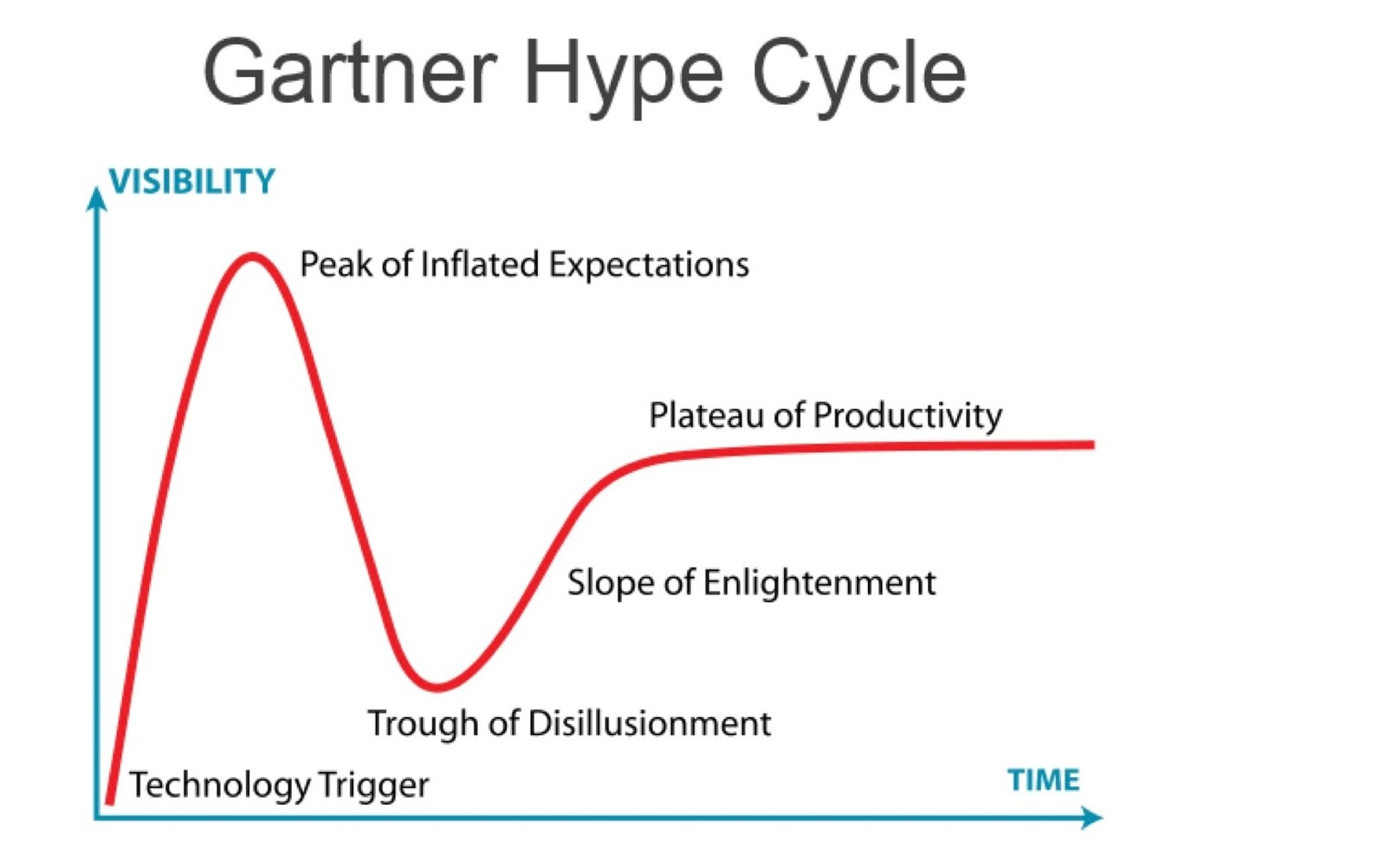I dunno if anyone except scientists and security people think about quantum computing at the moment.
Correct me if I'm wrong.
I'd say it's still at the beginning of the curve. At the technology trigger phase. I don't hear about it as much as I would expect
